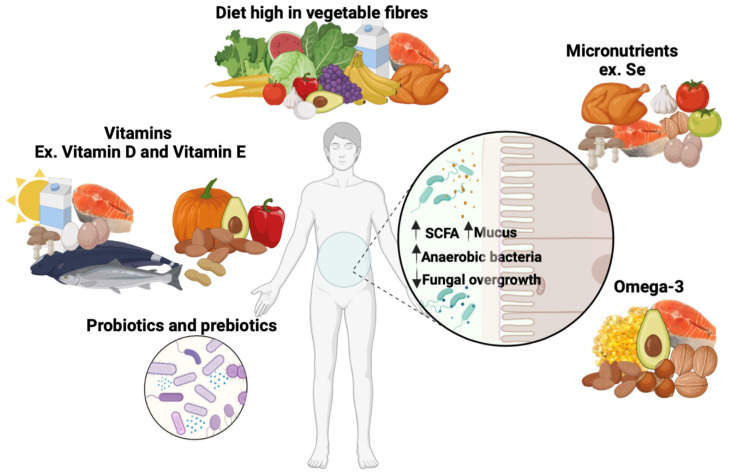Figure 3.
Schematic representation of the beneficial effects of a diet high in vegetable fiber, vitamins, micronutrients, omega-3 polyunsaturated fatty acids, and probiotics/prebiotics on the gut microbiota. A diet based on whole plant foods, including vegetables, fruits, whole grains, nuts, and seeds, associated with a portion of animal products (meat, dairy, and eggs) or seafood provides significant amounts of fiber, antioxidants, as well as vitamins like vitamins D and E, omega-3 fatty acids, and micronutrients such as selenium. In addition, a probiotic or prebiotic supplement is important to prevent gut dysbiosis. This diet contributes to an increase in short-chain fatty acid (SCFA) production and mucus secretion, as well as an increase in anaerobic bacteria such as Lactobacillus and Bifidobacterium species. Pathogenic fungi are significantly reduced in subjects consuming this diet. These conditions all promote gut microbiota biodiversity.

